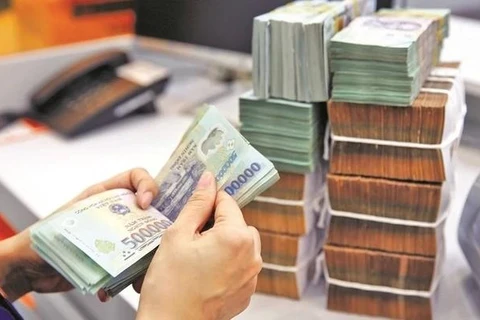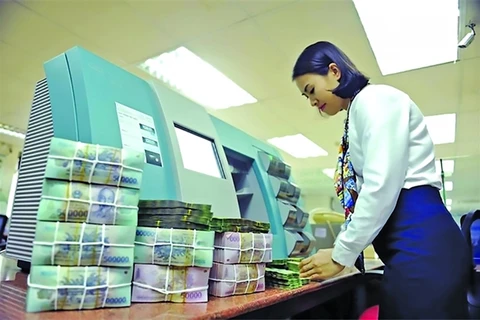
Hanoi (VNA) – The State Bank of Vietnam (SBV) has agreed to defer its circular on debt rescheduling and retention of debt categories until the end of this year to support enterprise production and business recovery.
Experts said the central bank’s move will ease financial stress for enterprises and help them have more investment resources for the recovery of production and business.
Dr Vo Tri Thanh, member of the National Financial and Monetary Policy Advisory Council, described the SBV’s continued extension of the debt repayment period as the right step. Many firms need assistance in capital even though there has been an improvement in orders.
“Interest rate cuts are not enough. It is necessary to create favourable conditions to allow better capital access and defer debt payment for enterprises”, he stressed.
Deputy Director General of the Vietnam Joint Stock Commercial Bank for Industry and Trade (VietinBank) Do Thanh Son said with the extension, borrowers have more time to fulfill their debt obligations amidst formidable challenges during 2024-2025 while pressure from bad debt settlement will be reduced.
Meanwhile, General Director of the Military Commercial Joint Stock Bank (MB) Pham Nhu Anh held that the central bank’s decision will address difficulties for enterprises with needs for debt restructuring in the coming time.
He expressed his hope that together with the bank’s solutions, a better economic situation in the country and the world will propel business recovery.
From the enterprises’ side, a leader from Hao An Phat, Phu An Phat and Bao An Phat business chain said debt payment has been a headache for enterprises. This is particularly so after the COVID-19 pandemic posed great challenges for them, such as high inventories and unpaid debts. Also, their customers are in financial trouble, creating an even worse situation.
Currently, enterprises are struggling to seek financial resources, therefore, the central bank’s extension of debt repayment will be useful for enterprises, he said.

Agreeing with the central bank’s step, Assoc. Prof. Dr Nguyen Huu Huan from the University of Economics Ho Chi Minh City said banks need to carefully evaluate the economic situation of businesses.
Businesses that have recovery capacity should receive support while debt restructuring should not be applied to businesses who are already in trouble to avoid the increase of bad debts in the banking system, he added.
Another expert said bad debt will increase in 2024 when corporate bonds reach maturity. The sale of assets is also difficult, so firms do not have money to service debt or to pay bonds.
If banks are not allowed to extend the payment deadline of existing debts, the debts will be transferred to an even more poorly functioning debt group.
According to SBV Governor Nguyen Thi Hong, as of June 14 this year, credit increased by 3.79% against the end of last year.
There is a high risk in credit growth that must be controlled, to ensure the safety of the banking system and focus on economic growth drivers, including new trends such as green credit.
The central bank said it would proactively manage credit growth to contribute to controlling inflation, stabilising the macroeconomy and supporting economic growth.
Credit institutions must promote credit safely and effectively to meet the capital needs of the economy, the SBV said. Institutions must direct lending to production, business and priority sectors and key economic growth drivers./.






















